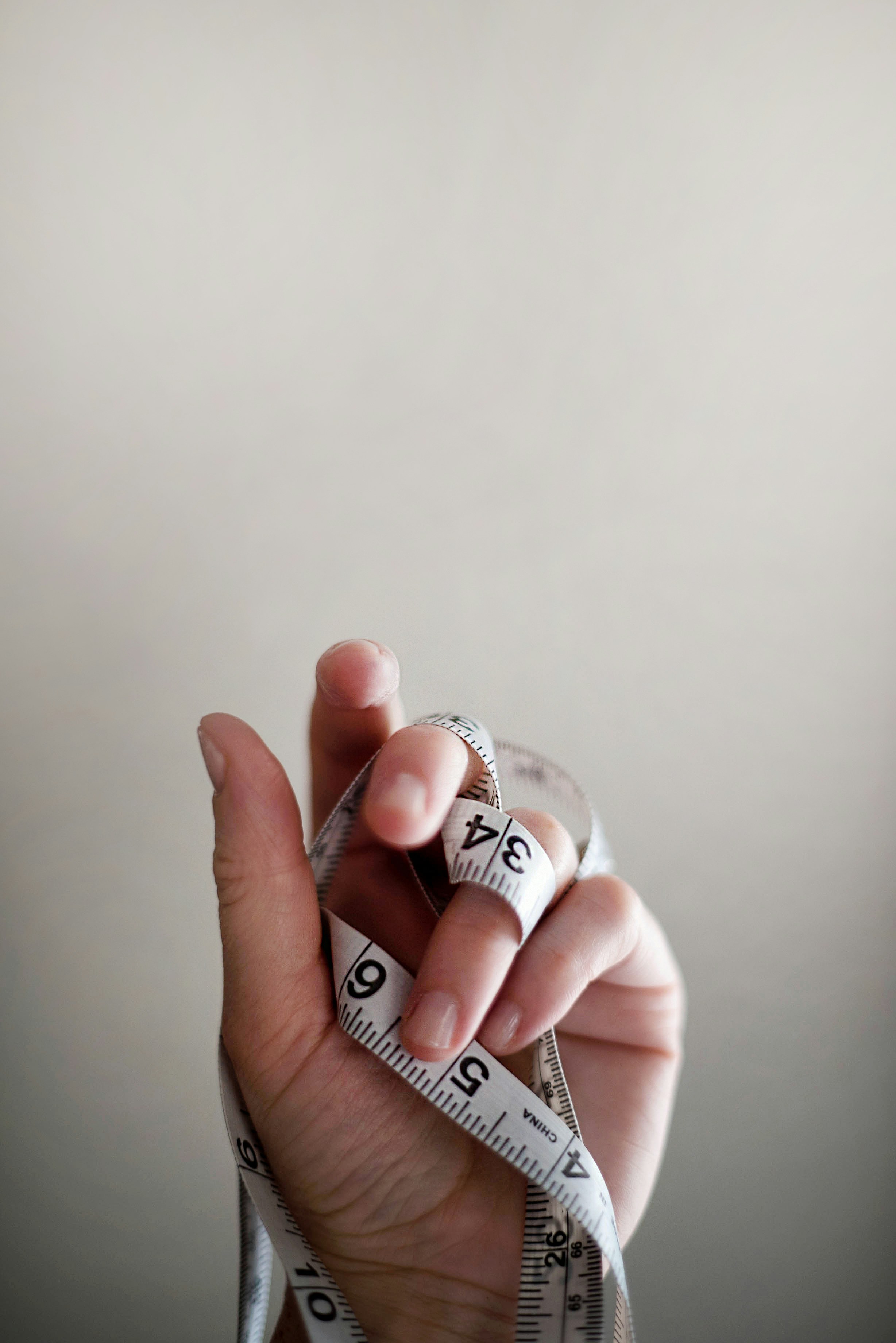Are Diet Pills Good For You
Are you curious about the effectiveness and safety of diet pills? In this article, we will explore the question “Are diet pills good for you?” and provide you with valuable insights. We understand that maintaining a healthy lifestyle is important to you, and we aim to provide news and information that will help you make informed decisions. So, let’s dive in and explore the world of diet pills to uncover the truth behind their benefits and potential risks.
Potential Benefits of Diet Pills
Increasing Energy Levels
One potential benefit of diet pills is the increase in energy levels they can provide. Many diet pills contain stimulants, such as caffeine, that can help boost your energy and improve your overall alertness. This can be especially beneficial for those who struggle with low energy levels and find it difficult to stay motivated throughout the day. With increased energy, you may find it easier to engage in physical activity and maintain an active lifestyle.
Suppressing Appetite
Another potential benefit of diet pills is their ability to suppress appetite. Some diet pills contain ingredients that can help you feel fuller for longer, reducing the urge to overeat or snack between meals. This can be particularly useful for individuals who struggle with portion control or emotional eating. By curbing your appetite, diet pills may support you in making healthier food choices and maintaining a calorie deficit, which is essential for weight loss.
Boosting Metabolism
Certain types of diet pills claim to boost metabolism, which can help in achieving weight loss goals. These pills often contain ingredients like green tea extract or thermogenic compounds that may increase the number of calories your body burns at rest. A higher metabolic rate can potentially lead to more efficient fat burning and weight loss over time. However, it is important to note that the effectiveness of these metabolism-boosting diet pills may vary among individuals.
Types of Diet Pills
Prescription Diet Pills
Prescription diet pills are medications that can only be obtained with a doctor’s prescription. These pills are typically recommended for individuals who have a body mass index (BMI) above a certain threshold or for those who have certain weight-related health conditions. Prescription diet pills often work by suppressing appetite, affecting the absorption of nutrients, or increasing calorie burn. These pills are regulated by health authorities and should only be taken under medical supervision.
Over-the-Counter Diet Pills
Over-the-counter (OTC) diet pills are readily available without a prescription and can be purchased at pharmacies or online. These pills often contain ingredients that are believed to aid in weight loss, such as caffeine, green tea extract, or fiber. OTC diet pills may have milder effects compared to prescription ones and are generally considered safe for short-term use. However, it is important to read the labels and follow the recommended dosage to avoid any potential risks or side effects.
Natural Herbal Supplements
Natural herbal supplements are another type of diet pills that are often available without a prescription. These pills contain natural ingredients, such as herbs, fruits, or plant extracts, that are believed to have weight loss properties. The effectiveness of herbal supplements can vary widely, and some may have limited scientific evidence supporting their claims. It is crucial to do thorough research and consult with a healthcare professional before starting any herbal supplement regimen to ensure safety and efficacy.
Risks and Side Effects of Diet Pills
High Blood Pressure
One of the potential risks associated with diet pills, especially those that contain stimulants, is an increase in blood pressure. Some individuals may be more sensitive to the effects of stimulants, which can lead to elevated blood pressure levels. This is particularly concerning for individuals who already have high blood pressure or other cardiovascular conditions. It is essential to consult with a healthcare professional before taking any diet pills, especially if you have a history of hypertension or heart problems.
Heart Problems
Certain diet pills, particularly those containing stimulants, may increase the risk of heart problems, such as cardiac arrhythmias or heart palpitations. Stimulants can affect the electrical conduction system of the heart, potentially causing irregular heartbeats or other cardiac issues. Individuals with pre-existing heart conditions or a history of heart disease should be particularly cautious when considering diet pills. A thorough examination and clearance from a healthcare professional are recommended before starting any diet pill regimen.
Digestive Issues
Some diet pills, especially those that contain fat-blocking or digestion-inhibiting ingredients, can lead to digestive issues. These pills may interfere with the normal digestion and absorption of nutrients, resulting in symptoms like diarrhea, oily stools, or excessive gas. It is crucial to understand the potential side effects of diet pills and assess their impact on your digestive system. If any discomfort or persistent digestive problems occur, it is advisable to discontinue use and consult with a healthcare professional.
Effectiveness of Diet Pills
Limited Evidence
When it comes to the effectiveness of diet pills, the scientific evidence is often limited. The majority of studies focus on short-term effects or specific ingredients, making it challenging to draw broad conclusions about the overall efficacy of diet pills. Additionally, weight loss results can vary significantly among individuals, and factors such as genetics, lifestyle, and adherence to the recommended dosage also play a significant role. It is important to approach diet pills with realistic expectations and consider them as part of a comprehensive weight loss plan.
Placebo Effect
The placebo effect may contribute to the perceived effectiveness of some diet pills. The belief that a pill will aid in weight loss can have a psychological impact, leading individuals to make healthier choices and adopt positive habits. It is essential to acknowledge this potential placebo effect when evaluating the effectiveness of diet pills. While some may experience significant weight loss, others may notice little to no change. It is crucial to focus on sustainable lifestyle changes alongside the use of diet pills for long-term success.
Individual Variation
Individual variation is a key factor in the effectiveness of diet pills. What works for one person may not yield the same results for another. Factors such as metabolism, body composition, and overall health can influence how diet pills affect weight loss efforts. It is advisable to monitor your progress closely, listen to your body, and make adjustments as necessary. Consulting with a healthcare professional can provide personalized guidance and help you select the most suitable diet pills for your individual needs.
Considerations before Taking Diet Pills
Consulting a Healthcare Professional
Before taking any diet pills, it is crucial to consult with a healthcare professional. They can assess your overall health, address any underlying medical conditions, and provide personalized recommendations. A healthcare professional can also help determine if diet pills are a suitable option for you based on your individual circumstances. Seeking their guidance can ensure that you approach weight loss interventions safely and effectively.
Understanding the Ingredients
It is important to thoroughly understand the ingredients present in diet pills before consuming them. Take the time to research the ingredients and their potential benefits or risks. Certain ingredients may interact with medications you are currently taking or have side effects that could impact your health. Knowledge of the ingredients can also help you make an informed decision on whether the diet pills are aligned with your health goals and preferences.
Reading Customer Reviews
Reading customer reviews can provide valuable insights into the experiences of others who have used the diet pills you are considering. While individual experiences can vary, reviews can shed light on potential side effects, effectiveness, and overall satisfaction with the product. However, it is important to consider a wide range of reviews and exercise caution as some reviews may be biased or unreliable. Always prioritize scientifically-backed information and consult with healthcare professionals for a well-rounded understanding.
Alternatives to Diet Pills
Healthy Diet and Regular Exercise
A healthy diet and regular exercise are foundational components of any effective weight loss plan. Adopting a balanced and nutritious eating pattern, along with engaging in regular physical activity, can help create a calorie deficit and promote gradual, sustainable weight loss. These lifestyle modifications not only support weight management but also provide numerous other health benefits. Incorporating whole foods, lean proteins, fruits, vegetables, and whole grains into your diet, while finding enjoyable forms of exercise, can lead to long-term success without the need for diet pills.
Behavioral Changes
Changing your behaviors and attitudes towards food and physical activity is another key alternative to relying on diet pills. This involves adopting mindful eating practices, managing stress and emotions without turning to food, and finding ways to incorporate movement into your daily routine. By identifying and addressing underlying habits and triggers, you can develop a healthier relationship with food and implement lifelong changes that support weight management.
Portion Control
Practicing portion control is an essential aspect of weight management. Instead of relying on diet pills to suppress appetite or control cravings, learning to listen to your body’s hunger and fullness cues can help you establish appropriate portion sizes. Techniques such as using smaller plates, measuring food portions, and practicing mindful eating can prevent overeating and promote healthier eating habits. Portion control is a sustainable approach that can help you achieve and maintain a healthy weight in the long run.
Regulation and Safety Standards
FDA Approval
The United States Food and Drug Administration (FDA) regulates the safety and effectiveness of prescription and some over-the-counter diet pills. FDA-approved diet pills go through rigorous testing to ensure their safety and efficacy. However, it is important to note that not all diet pills on the market have FDA approval. When considering diet pills for weight loss, selecting FDA-approved options can provide added confidence in their manufacturing standards and safety. It is advisable to check for FDA approval and consult with healthcare professionals for further guidance.
Industry Regulations
Apart from FDA regulations, various industry organizations and associations have established guidelines and standards for diet pills and supplements. These include Good Manufacturing Practices (GMP), which ensure quality control throughout the manufacturing process, and third-party testing to verify product claims and ingredient purity. Look for diet pills that adhere to these industry regulations and have undergone independent testing to ensure the product’s safety and reliability.
Adulterated Products
While regulatory bodies work to enforce safety standards, it is important to be aware of adulterated products that may exist in the market. These are products that may contain undisclosed or harmful ingredients, posing potential health risks to consumers. It is crucial to thoroughly research diet pills and choose reputable brands that prioritize safety, transparency, and product quality. Reading customer reviews, consulting with healthcare professionals, and verifying third-party testing can help you avoid adulterated products.
Misconceptions about Diet Pills
Miraculous Weight Loss
One common misconception about diet pills is the belief that they can lead to miraculous weight loss without making any additional lifestyle changes. While diet pills may aid in weight loss efforts, they are not a magic solution on their own. Sustainable weight loss requires a comprehensive approach that includes a balanced diet, regular physical activity, and behavioral changes. Diet pills should be viewed as a supplementary tool rather than a sole solution for achieving weight loss goals.
Sustainable Long-Term Solutions
Another misconception is that diet pills can provide long-term weight management. While they may support short-term weight loss, maintaining a healthy weight in the long run requires ongoing lifestyle changes. Relying solely on diet pills without adopting sustainable habits can lead to weight regain once you stop taking the pills. It is important to focus on developing a healthy relationship with food, incorporating regular exercise, and implementing behavior modifications to achieve long-term weight management.
Replacing Healthy Lifestyle Choices
Diet pills should never be seen as a substitute for healthy lifestyle choices. While they may offer temporary support, relying solely on diet pills without making broader changes to your diet and activity levels can be detrimental to your overall health and well-being. Engaging in regular physical activity, consuming a balanced diet, and prioritizing overall wellness are crucial for long-term success. Diet pills can only complement and enhance the efforts you put into adopting a healthy lifestyle.
Fad Diets and Diet Pills
Unrealistic Expectations
Fad diets often go hand in hand with the use of diet pills, as both promise quick and drastic weight loss. However, these expectations can be unrealistic and may set individuals up for disappointment. Rapid weight loss is often unsustainable and can negatively impact overall health. It is important to approach weight loss with a realistic mindset, focusing on gradual progress and making lifestyle changes that can be maintained in the long term.
Yo-yo Dieting
Yo-yo dieting, or weight cycling, is a pattern of repeatedly losing weight and then regaining it, often through the use of fad diets and diet pills. This cycle can have a detrimental effect on metabolic health and psychological well-being. The temporary weight loss achieved through extreme measures is typically followed by weight regain, causing frustration and a sense of failure. Instead of resorting to fad diets and diet pills, it is advisable to adopt a balanced, sustainable approach that promotes overall well-being.
Psychological Impact
Fad diets and the reliance on diet pills can have a significant psychological impact on individuals. The pressure to achieve quick results, along with the potential disappointment and feelings of failure when weight loss stalls or is regained, can lead to anxiety, low self-esteem, and disordered eating habits. It is important to prioritize mental health and well-being alongside physical health. Developing a positive body image, cultivating self-compassion, and seeking support from healthcare professionals or a registered dietitian can help navigate the psychological challenges associated with weight loss efforts.
Case Studies and Personal Experiences
Success Stories
There are individuals who have reported successful weight loss experiences with the use of diet pills. These success stories often involve a combination of diet pills, balanced eating, and regular exercise. While these anecdotal accounts can be inspiring, it is important to consider that individual results may vary. The authenticity and reliability of these success stories should also be critically assessed. Experiences shared by others can provide insights and motivation, but it is crucial to focus on a well-rounded approach and consult with healthcare professionals for personalized advice.
Negative Experiences
Negative experiences with diet pills are also prevalent. These can range from mild side effects, such as nausea or headaches, to more severe reactions that require medical intervention. Some individuals may find that diet pills do not produce the desired weight loss or bring about any noticeable change. Negative experiences should not be ignored, and it is essential to prioritize your health and well-being above all else. If you experience any adverse effects or feel that diet pills are not the right solution for you, consult with a healthcare professional for guidance and alternative approaches.
Mixed Results
It is important to acknowledge that the results of using diet pills can be mixed. While some may experience significant weight loss and positive changes in their health, others may find little to no improvement. Factors such as individual physiology, adherence to recommended dosages, and overall lifestyle choices can contribute to these mixed results. It is advisable to approach the use of diet pills with an open mind, closely monitor your progress, and make adjustments as needed based on your personal experiences.
In conclusion, diet pills can potentially offer benefits such as increased energy levels, appetite suppression, and boosted metabolism. However, it is essential to understand the potential risks and side effects associated with them, including high blood pressure, heart problems, and digestive issues. The effectiveness of diet pills may be limited, and individual variation plays a significant role in weight loss outcomes. Before considering diet pills, it is important to consult with a healthcare professional, understand the ingredients, and read customer reviews.
It is crucial to explore alternatives to diet pills, such as adopting a healthy diet and regular exercise, making behavioral changes, and practicing portion control. Regulation and safety standards, including FDA approval and industry regulations, should be considered when selecting diet pills. Misconceptions about diet pills, fad diets, and the psychological impact they can have should be recognized and addressed. Case studies and personal experiences provide varying perspectives, with success stories, negative experiences, and mixed results being reported. Ultimately, making informed choices and prioritizing overall health and well-being are crucial on the journey of achieving sustainable weight management.











